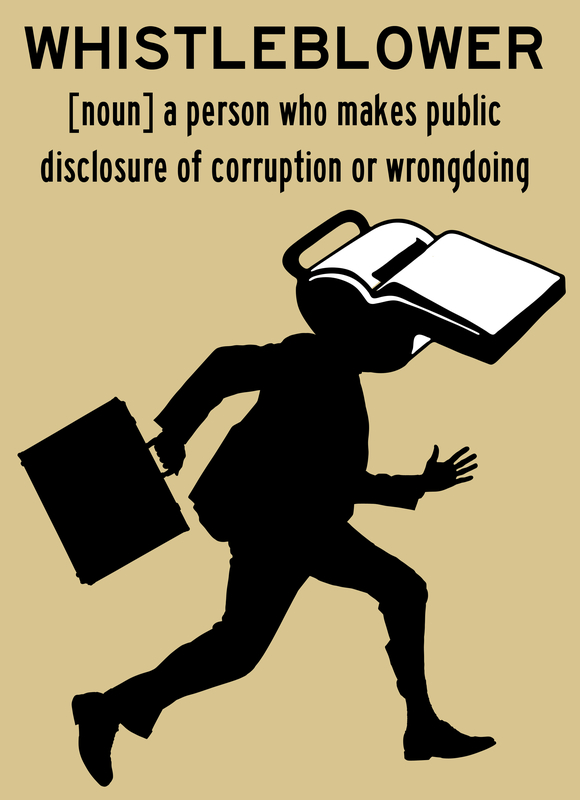Whistleblower actions, also known as qui tam lawsuits, are a special breed of litigation, with many different procedural steps and hurdles that are unique to this type of action.  When we learned about the SEC awarding $4 million to a whistleblower for exposing securities misconduct within the agency, we had to wonder how and when do expert witnesses come into play in a qui tam action and who would make the best expert. As the most knowledgeable person on the subject matter, the likely answer to that question is the whistleblower himself. Can the whistleblower be the expert?
When we learned about the SEC awarding $4 million to a whistleblower for exposing securities misconduct within the agency, we had to wonder how and when do expert witnesses come into play in a qui tam action and who would make the best expert. As the most knowledgeable person on the subject matter, the likely answer to that question is the whistleblower himself. Can the whistleblower be the expert?
“Not only did this whistleblower step forward and report suspicious conduct, but continued to help after we opened our investigation,” said Jane Norberg, chief of the SEC’s Office of the Whistleblower, in a statement about the recent SEC qui tam action. Typically, the whistleblower, as the primary proponent and originator of the case, remains highly involved once an investigation is initiated and the misconduct uncovered. Generally, the whistleblower in a qui tam action is someone with industry-specific knowledge and high-end expertise on the conduct involved and his assistance during the development of the case is not only helpful, but more often, critical. As Norberg explained, “[w]histleblowers with specialized experience or expertise can help us expend fewer resources in our investigations and bring enforcement actions more efficiently.” In essence, that does make our blaring referee the “expert” on the matter, does it not? But, let’s talk about the pros and cons of allowing the whistleblower to serve as the expert witness in a qui tam action.
You probably had one immediate con come to mind - bias. That’s true with any plaintiff who takes the stand to tell his side of the story though. The one person who stands to gain the most from a verdict in the plaintiff’s favor is the plaintiff. He has a built-in incentive to shave off a few rough edges and shine a more flattering light on his version of the truth so it looks more appealing to the jury. It’s impossible to think anyone telling their side of anything is capable of not doing this, at least to some degree. It’s human nature. But, this is when the plaintiff is merely testifying as a fact witness. The jury needs the facts, even rose-colored ones, to make a decision. What about the plaintiff acting not as the purveyor of what occurred but, rather the educator on how the jury is supposed to process it? Is there still a worry for bias when the plaintiff is acting as the expert, in a qui tam action, explaining the misconduct to the jury? For example—in a medical False Claims Act qui tam action—imagine the whistleblower takes the stand to teach the jury what “up-coding” is, i.e., where healthcare providers assign simple procedures with an ICD-9 code for a more complicated, more expensive procedure to be paid a higher amount by the government. Does this make the bias worse because the plaintiff is no longer simply conveying facts, but now teaching the jury what those facts mean in terms of what is right and what is wrong? Likely, but we would like to hear your thoughts. Should the whistleblower be the expert witness? Should he even take the stand at all?
What if the misconduct at issue doesn’t require expert testimony? It is often the case in qui tam actions that the actual conduct forming the basis of liability is simple and does not require expert testimony for the jury to comprehend it. For example, coding a laparoscopic medical procedure as an invasive one to receive more money is not something that requires scientific testimony. More often than not, because qui tam actions typically involve hundreds, if not thousands, of false claims to the government for compensation, generally the area where expert testimony is needed is not the misconduct itself, but, rather, how to calculate the damages. Where the false claims are too widespread to reconstruct, a statistical expert may be brought in to testify as to the amount of damages based on extrapolation of audited claims. See United States ex. Rel. Loughren v. Unum Provident Corp., 604 F.Supp.2d 258 (D. Mass. 2009); United States ex rel. Martin v. Life Care Ctrs. of Am., Inc., 2014 U.S. Dist. LEXIS 142660 (E.D. Tenn. Sept. 29, 2014). Interestingly, in the Life Care case, the false claims were so rampant and varied, the court allowed the plaintiff to use statistical extrapolation to prove not only damages, but liability.
While it is likely the whistleblower in that action was an active player in the medical industry, it is unlikely he was a statistician. Sometimes the person most knowledgeable about the misconduct is not the best person to prove it. This is where expert witnesses come in.



 i
i

